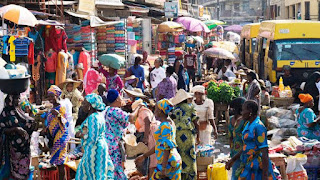Inflation Rate In Nigeria 2021
Nigeria could pick up an award when it comes to inflation. Our inflation rates have been rising steadily overtime. When you hear inflation, you should think of Price Stability.
This means the relationship between the value of money and goods or services. In other words, think of every time you’ve felt that the Naira was loosing value. That is the inflation we are talking about. What is the Inflation Rate in Nigeria as at 2021?
Inflation occurs when the supply of money in an economy is higher than the rate at which goods and services in the country are being produced or supplied.
In other words, there is more money in the economy, but less goods and services or better put, not enough new products and services.
The Impact of Inflation on the Nigerian Economy
Inflation is the reason why the prices of goods and services have been on a steady rise and our money has been loosing it’s buying power. That means what I could get for 1naira many years ago will cost much more today.
The reason there is such concern about Inflation is because the rate of inflation ends up affecting the economy negatively. It is the sign of an economy that isn’t really growing if there is a steady rise in the rate of inflation.
Nigeria however has been steadily increasing its inflation rate rising to up to 2 digits as at 2021. Studies have also shown that the Inflation Rate has a relationship with our GDP. An increase in the GDP will see a reduction in the inflation rate and vice versa.
This means that the rate of inflation can be reduced by an increase in productivity.
In general, price instability can lead to a lot of things including; a lower standard of living, increased cost of doing business, increased interest rates on loans, mortgage, and literally every other part of the economy.
Inflation Rate in 2021
To understand how inflation has worked over time, we will have to look back a couple of years.
The Nigerian Inflation Rate has been on double digits since 2016.
However, as at February, 2021, the inflation rate has reached a high of 17.33%. It has been steadily rising from there. As at March 2021, it had gone up to 18.17% which Is the highest we’ve seen since January 2017.
These high rates have been attributed majorly to the Pandemic and Lockdown in 2020. The reduced oil prices and the weakening of the Naira as a currency have definitely contributed to this spike also.
The most important categories used to measure inflation rate in Nigeria are Food and Non Alcoholic Beverages (51.8 percent of total weight); Housing, Water, Electricity, Gas and Fuel (16.7 percent) and Clothing and Footwear (7.7 percent).
Food inflation in particular was seen to have hit an almost all time high this year, due to a reduction in supply and a scarcity of the dollar.
In Nigeria, the change over time in prices of goods and services consumed by people for day-to-day living are measured by an index called the Consumer Price Index (CPI).
The bottom line is that the Inflation Rate in Nigeria has been on a steady increase and it shows in our economy.

